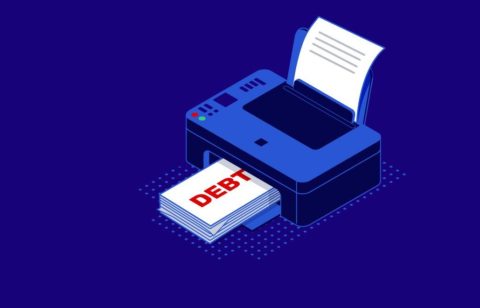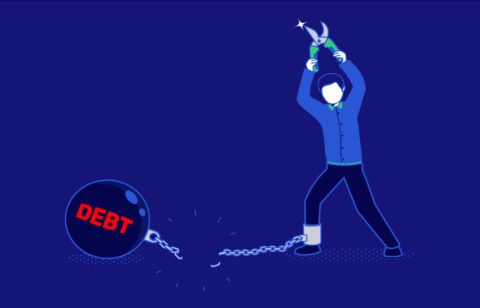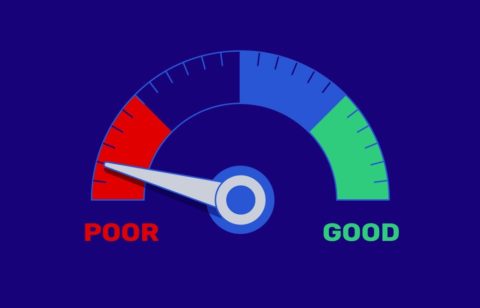There are basically two types of student loans – private and federal.
There is currently more than $1 trillion outstanding in federal loan debt and about $150 billion in private student loans. This alone should tell you that federal loans are a better choice.
But unfortunately some parents and their children don’t understand the differences between the two and this can lead to trouble in the future.
There may be some reason why you would need to get a private student loan but before you or your parents sign on the dotted line it’s important to know what makes them different from federal loans.
They may require you start repayment immediately
There are subsidized and unsubsidized federal loans. For example, if you come from a low-income family, you might qualify for a subsidized Stafford or Perkins loan. The major benefit of these loans is that you are not required to pay interest on them while you’re still in school. Instead, the government pays the interest for you (hence the term subsidized). Plus, with federal loans you have a grace period after you graduate of six months before you’re required to start repaying the loan (loans).
But if you take out a private loan you may have to begin repaying it immediately and even if you don’t there will be no grace period after graduation.
Higher interest rate
If you’re just starting college there are only “direct” loans available. They are called direct because the money comes directly from the US Department of Education (ED). These loans have fixed interest rates meaning that once you take out the loan your interest will never change. On the other hand, the interest rates on private student loans can be quite high and can vary. Today’s direct federal loans’ fixed interest rate is 4.66% if the funds are distributed on or after July 1, 2014 and before July 1, 2015. In comparison, the best private student loans have interest rates tied to the 1-month LIBOR (IntercontinentalExchange London Interbank Offered Rate), so their interest rates can go up or down every month.
You’ll need a credit check
Direct federal student loans don’t require a credit check (except for PLUS loans). However, most private student loans do require one. This means you would need to have an established credit history, which, as an 18- or 19-year old, you probably don’t have one and will need a co-signer. In most cases that co-signer would be your parent, which would put her or him on the hook to repay the loan if you defaulted on it.
Not tax deductible
The interest you pay on federal direct loans is usually tax-deductible whereas the interest on most private student loans isn’t. For example if you have a “qualified” student loan you may be able to reduce your income subject to taxation by up to $2500 even if you don’t itemize your deductions. This could be a big help when you’re just starting out in life after school.
Won’t qualify for a Direct Consolidation Loan
Most federal student loans can be consolidated with a Direct Consolidation loan. This can be helpful if you graduate owing a lot on your federal loans and are having a hard time making your monthly payments. With a Direct Consolidation loan you would have a lower (maybe much lower) monthly payment and more time to repay it. However, private student loans don’t qualify for a Direct Consolidation loan. If you wanted to consolidate them you would need to get a private consolidation loan, which would probably have a much higher interest rate.
Offer fewer payment options
Federal student loans offer numerous repayment options. There is 10-Year Standard Repayment, Extended Repayment, Graduated Repayment and four different types of Income–based Repayment. Private student loans offer fewer options. As an example of this, if you were to get your loan from Wells Fargo, the only repayment options would be how you make your payments. The loan giant Sallie Mae does offer three genuine repayment options – deferred repayment where you make no payments while you’re in school; fixed repayment where you pay just $25 a month while in school; and interest-free repayment which is when you pay only interest on the loan while still in school.
Don’t include forgiveness
Many federal student loans come with what’s called “forgiveness.” This is where if you make all of your payments and on time for 20 years, your remaining balance(s) would be forgiven or erased. It gets even better if you qualify for Public Service Loan Forgiveness as you could get any remaining balances eliminated after just 10 years. Private student loans, on the other hand, rarely offer forgiveness.
Could be a second choice
Most students will do best with a federal student loan as they offer a better deal. However, you might have to look at a private student loan to fill in a gap in your financing. But before you do anything at all, be sure to fill out the Free Application for Federal Student Aid (FAFSA). It will be submitted to the Department of Education and to any schools where you applied for admission. Those schools will ultimately send you a financial aid letter spelling out what you can expect to receive in scholarships, grants and so forth. Once you receive that letter or letter you will know whether or not you will need a private loan.
 Shop around
Shop around
Back in the 1960s, the singing group The Miracles had a song titled Shop Around. Included in its lyrics were, ” My mama told me/’you better shop around”. This is definitely the case when it comes to private student loans. In the case of a federal student loan, the government basically tells you how much you can borrow, sets the terms for the different types of loans and basically says take it or leave it. This is not the case with private lenders. You should shop as many different lenders as you like but at least a few. That way, you should be able to get the best terms and rates given your particular needs.
When you’re shopping around, don’t choose a loan just on its rate though this is important. Be sure to check out the other terms that could be helpful now or in the future. For instance, if you choose a loan with the repayment option of making interest only payments while you’re in school, you won’t have to worry about taking on those bigger student loan payments right away. You should also check to see if the loan offers flexible payment options after college some, such as Sallie Mae does.
Understand your payments
If you take out a federal student loan it’s important that you know what you’ll eventually be paying on it. But this can be even more important if you choose a private student loan. The reason for this is that with a federal loan with 10-Year Standard Repayment you could plan on paying, say, $150 a month once you graduated. If you then can’t find a job or end up with a lower paying job, you could switch to an income-based repayment plan or an extended plan with lower payments. On the other hand, if you end up in the same place with a private loan, you would still be on the hook for that $150 a month – even if you don’t have a job. You should be doubly sure that you would be in a position to make the minimum payments on your private student loan, even if your life doesn’t go as you had planned.
More shopping around
If you’re are thinking about taking out a private loan to cover, say, a $10,000 gap in funding from the school you’ve chosen, you might be better off shopping around for a more affordable college. Many students now choose to go to a two-year or community college for their first couple of years and then transfer to a more prestigious school. That way they sort of get the best of both possible worlds. They save a lot of money on tuition, which reduces their student loan debt substantially, yet they still graduate with a “prestigious” degree.







